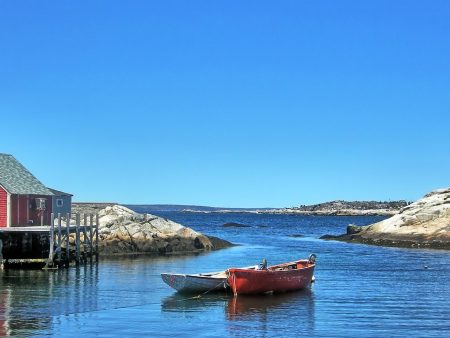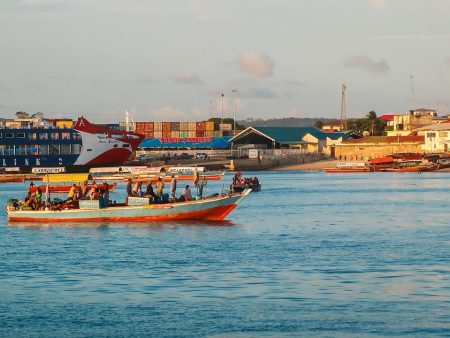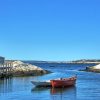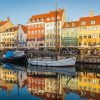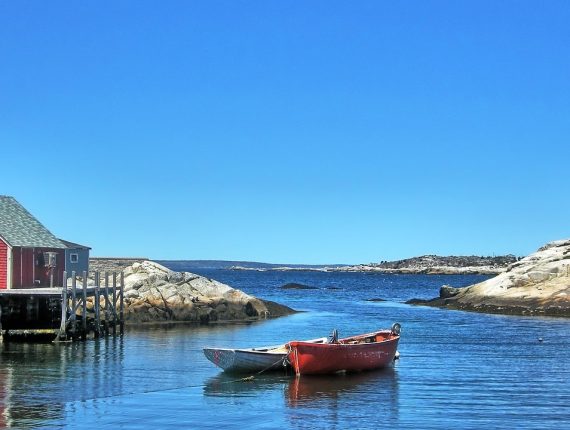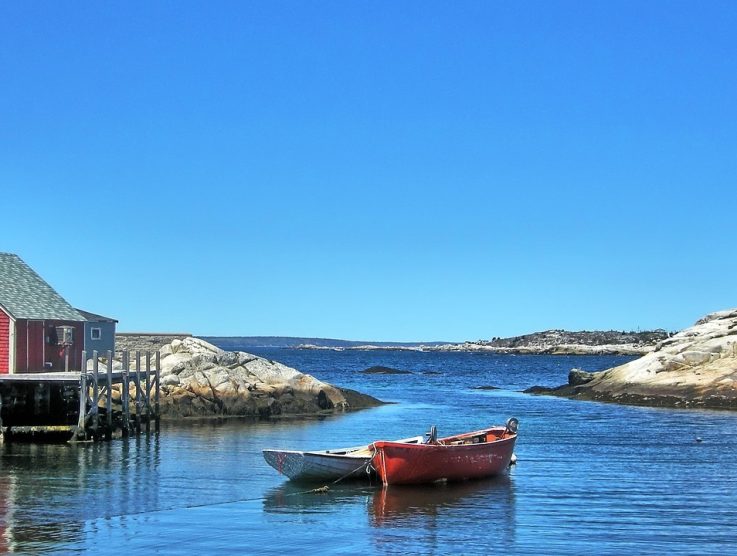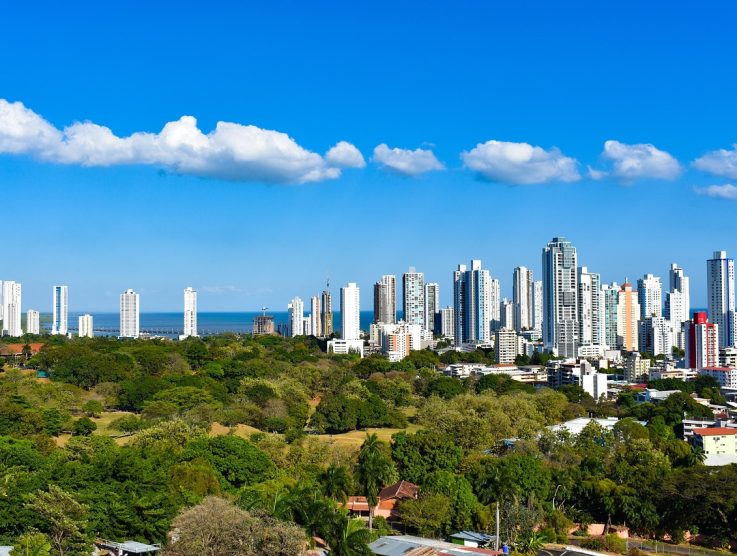Iceland, a nation of stark volcanic landscapes, geothermal wonders, vibrant culture, and a remarkably high standard of living, captivates many seeking unique career experiences. However, its small population, distinct language, and specialized economy present unique challenges and opportunities for job seekers. This guide details pathways to employment, with a focus on teaching opportunities and strategies for other sectors.
I. Essential Foundations: Prerequisites for Working in Iceland
- Right to Work & Residence:
- EEA/EFTA (EU + Norway, Liechtenstein, Switzerland) Citizens: Enjoy freedom of movement and work. You must register with Registers Iceland (Þjóðskrá) within 3 months of arrival and apply for a kennitala (personal ID number).
- Non-EEA/EFTA Citizens: Generally require a residence and work permitbefore arrival. The primary route is:
- Permit for Qualified Professionals: Requires a job offer from an Icelandic employer in a field requiring specific expertise or higher education. The job must meet minimum salary requirements (adjusted annually). The employer initiates the application by advertising the job in the EEA/EFTA for at least 14 days. Key permits include:
- Specialist Permit: For roles requiring higher education or specialized skills.
- Seasonal Work Permit: For temporary work (e.g., tourism, agriculture, up to 6 months).
- Working Holiday Permit: For young citizens of specific countries (e.g., Canada, Australia, NZ, Japan, Korea – check Directorate of Labour).
- EU Blue Card: For highly qualified professionals meeting strict salary and qualification thresholds.
- Permit for Qualified Professionals: Requires a job offer from an Icelandic employer in a field requiring specific expertise or higher education. The job must meet minimum salary requirements (adjusted annually). The employer initiates the application by advertising the job in the EEA/EFTA for at least 14 days. Key permits include:
- Resource: Directorate of Immigration (Útlendingastofnun): https://utl.is/en
- Language Proficiency: The Non-Negotiable Key (Mostly):
- Icelandic (Íslenska): Essential for the vast majority of jobs. Fluency is required for integration, daily life, and most professional roles outside very specific international niches. Teaching in state schools demands native-level fluency. Aim for B2/C1 level minimum for general professional work.
- English: Widely spoken fluently by almost the entire population. It’s the lingua franca in tourism, tech, international companies, and academia. While essential for communication initially, it is NOT sufficient for most permanent, integrated careers or teaching in the state system.
- Learning Icelandic: Start immediately and commit seriously. It’s a complex language critical for long-term success and integration. Resources: Mímir Símenntun, University of Iceland, Íslenska fyrir alla, apps (Drops, Memrise).
- Recognition of Qualifications (Vottun):
- For regulated professions (e.g., doctors, nurses, dentists, pharmacists, architects, engineers, lawyers, teachers, electricians), your foreign qualifications MUST be recognized by the relevant Icelandic authority.
- The Directorate of Education (Menntamálastofnun) handles recognition for teaching qualifications and many other professions. https://mms.is/english
- Other bodies: Specific professional associations regulate their fields (e.g., Icelandic Medical Association, Federation of Icelandic Engineers). Contact the relevant body directly.
- Process: Can be lengthy. Requires detailed, certified/notarized and translated documentation. Start early!
- Kennitala (Personal ID Number):
- Your 10-digit social security number is the cornerstone of Icelandic life. Needed for everything: employment, banking, taxes, healthcare, housing, phone contracts. Apply through Registers Iceland (Þjóðskrá) upon arrival/registration. https://www.skra.is/english/
II. The Heart of the Matter: Finding Teaching Jobs in Iceland
Teaching is highly respected but requires native-level Icelandic fluency and local qualification recognition for the state system.
- Requirements for State Schools (Grunnskólar & Framhaldsskólar):
- Qualification: A recognized teaching degree (usually a Master’s level qualification in Iceland: kennarapróf) relevant to the level (pre-school, compulsory school, upper secondary).
- Icelandic Proficiency: Native-level fluency is mandatory. Teaching, curriculum delivery, parent-teacher communication, and administration require perfect command.
- Recognition (Vottun): Your foreign teaching qualification must be assessed and recognized as equivalent by Menntamálastofnun.
- Teaching License (Kennararéttindi): Granted by Menntamálastofnun after successful recognition of qualifications.
- Police Certificate (Einkunnabréf): Mandatory background check.
- Pathways for Foreign Teachers:
- State/Public Schools: Extremely difficult without native-level Icelandic and full qualification recognition/license. Demand exists for specialized subjects (see below), but the language barrier is formidable.
- International School of Iceland (ISI): The only full international school (IB curriculum), located in Reykjavík. Primary route for English-speaking teachers.
- Requirements: Recognized teaching qualification (Bachelor’s min, Master’s pref), relevant experience, home country license. IB experience highly valued. Icelandic not required for teaching. Visa sponsorship possible.
- Private Language Schools: Several in Reykjavík teaching English, Danish, Spanish, etc., primarily to adults and children.
- Requirements: Bachelor’s degree, recognized TEFL/CELTA certificate (120+ hours). Native/near-native proficiency in the target language essential. Experience preferred. Icelandic helpful but not always required for teaching.
- Universities (Háskólar): University of Iceland, Reykjavík University, University of Akureyri hire international lecturers/researchers for subjects taught in English (especially at Master’s/PhD level). Requires a PhD and strong academic profile. Icelandic proficiency expectations vary by department/role.
- Nursery Schools (Leikskólar): May hire assistants with relevant early childhood education backgrounds. Icelandic fluency is still usually required.
- In-Demand Teaching Areas:
- STEM Teachers: Especially Mathematics, Physics, Chemistry, Computer Science.
- Foreign Language Teachers: English (high demand), Danish (mandatory in schools), Spanish, German. Chinese growing.
- Special Needs Education (Sérfræðiþjónusta).
- Vocational Teachers (Iðnskólar): Skilled trades experts.
- Where to Find Teaching Vacancies:
- State Schools: Check municipality (sveitarfélög) websites (e.g., Reykjavík City, Kópavogur, Hafnarfjörður – look for “Starfsmenn” or “Störf” sections). Menntamálastofnun may list some vacancies.
- International School of Iceland: Check their website and international recruitment agencies (Search Associates, Schrole, TES).
- Private Language Schools: Search company websites (e.g., Árni Magnússon Institute, Mímir, various local schools). Check Alfreð.is and Tvinna.is.
- Universities: Check individual university HR/career pages directly.
III. Finding Other Jobs: Key Sectors & Strategies
Iceland’s economy is small but dynamic, dominated by a few key sectors:
- Tourism & Hospitality: The largest export sector pre-pandemic and recovering strongly. Huge seasonal demand (summer, Northern Lights winter). Roles: Hotels, restaurants, tour guides (adventure, whale watching, glacier hiking), travel agencies, customer service. English is the working language here, but Icelandic is a major asset and needed for career progression. Seasonal work permits are common.
- Fisheries & Fish Processing: Traditional backbone of the economy. Roles: Fishing vessels, fish processing plants (often in smaller towns), aquaculture, sales. Requires physical stamina and often Icelandic.
- Energy (Geothermal & Hydroelectric): World leader. Roles: Engineers (mechanical, electrical, geothermal), technicians, plant operators, project managers. High specialization required. Icelandic often needed.
- Aluminum Smelting: Major industry. Roles: Engineers, metallurgists, technicians, plant operators. Usually requires specialized skills and Icelandic.
- Technology & Innovation: Growing sector, especially in Reykjavík (fintech, software, gaming, biotech, data centers leveraging green energy). Roles: Software developers, data scientists, engineers, cybersecurity, sales. English is often the working language in tech companies. Demand for highly skilled professionals.
- Healthcare: Constant demand for doctors, nurses (especially specialized), physiotherapists. Requires fluent Icelandic and recognition of qualifications.
- Construction: Fluctuates with the economy. Roles: Skilled trades (carpenters, electricians, plumbers), engineers, project managers. Often requires Icelandic and local certification.
Job Search Strategies & Resources:
- Online Job Boards:
- Alfreð.is: The largest and most important job portal. Run by the Icelandic Confederation of Labour (ASÍ) and the Confederation of Icelandic Employers (SA). https://alfred.is/ (Icelandic interface, use browser translate).
- Tvinna.is: Another major portal. https://www.tvinna.is/ (Icelandic).
- Job.is: Popular portal. https://job.is/ (Icelandic).
- LinkedIn: Increasingly important, especially for tech, professional, and international roles. Set location to Iceland/Reykjavík.
- Directories: Fasteignaskrá (company registry) can help find companies to target: https://www.skra.is/fyrirtaekjaskra
- Vinnumálastofnun (Directorate of Labour): Lists some vacancies, especially public sector. https://www.vinnumalastofnun.is/ (Icelandic).
- Recruitment Agencies (Ráðningarþjónusta):
- Used for specialized roles, temporary work, and some permanent placements (especially in tech, finance, healthcare).
- Examples: Capacent Talents, Völv, Staffpoint, Eurskill, Hays, GRÓ Recruitment.
- Direct Applications & Networking (Mikilvægt!):
- Crucial in Iceland’s small, interconnected society. Many jobs are never advertised publicly.
- Networking: Attend industry events, meetups, conferences. Join professional associations. Leverage LinkedIn connections aggressively. Talk to everyone you meet. “Kaffi” (coffee) culture is key.
- Informational Interviews: Ask for advice, not a job.
- Open Applications (Óbeðnar umsóknir): Research companies you want to work for and send speculative applications/CVs. Very common and often successful.
- Seasonal/Tourism Focus: If starting out, target large hotels, tour operators (Reykjavík Excursions, Gray Line, Arctic Adventures), restaurants, and the Blue Lagoon. Apply well in advance of the season (Jan-Mar for summer, Aug-Oct for winter).
IV. The Application Process: CV & Interview
- The Icelandic CV (Ferilskrá):
- Typically 1-2 pages, chronological (reverse order).
- Photo: Common and expected.
- Personal Details: Name, address, phone, email, Kennitala. Date of birth and marital status are often included. Nationality common.
- Personal Profile (Persónuprofil): A brief summary (3-5 lines) highlighting key skills and career goals.
- Work Experience (Starfsreynsla): Company, dates, job title, detailed bullet points of responsibilities and achievements (quantify!).
- Education (Menntun): Institution, dates, degree, field.
- Skills (Hæfni): Languages (with proficiency level), IT skills, licenses, certificates.
- References (Meðmælendur): “References available upon request” is common, or list 2-3 with contact info.
- Cover Letter (Umsóknarbréf):
- Essential. Tailor meticulously for each application.
- Address the hiring manager by name.
- Explain your interest in this specific company and role.
- Demonstrate how your skills/experience match the job requirements.
- Convey enthusiasm and cultural fit.
- Keep it concise (1 page).
- Interviews:
- Can be multiple rounds (HR, hiring manager, team). May include practical tests.
- Punctuality is paramount.
- Dress professionally (smart business casual or formal).
- Prepare for competency-based and technical questions. Research the company extensively.
- Have insightful questions ready.
- Cultural Note: Icelanders value humility, competence, directness, and a strong work ethic. Be confident but not boastful. Honesty is appreciated. The atmosphere may be informal despite the professionalism.
V. Important Considerations
- Salary Expectations: Salaries are high but so is the cost of living (especially housing, food, and services in Reykjavík). Research averages for your role via unions (e.g., VR – Store and Office Workers’ Union, BHM – Federation of General and Special Workers) or salary surveys on Alfreð.is/Tvinna.is. Negotiation is common.
- Work Culture: Generally flat hierarchies, informal atmosphere, strong emphasis on work-life balance (37.5-40 hr weeks, 24+ vacation days), independence, and trust. Punctuality is vital. Summer holidays (July) are sacred.
- Cost of Living: Very High. Reykjavík is among the most expensive cities globally. Budget carefully for rent (competitive market), groceries, dining out, transport, and utilities. Use Numbeo for comparisons.
- Housing: Securing affordable housing, especially in Reykjavík, is a major challenge. Start searching early via Leiga.is, Blálíkan.is, Facebook groups (e.g., “Leiga í Reykjavík”, “Accommodation in Iceland”), and word-of-mouth.
- Learning Icelandic: Not optional for long-term integration and career growth beyond tourism/tech bubbles. It shows commitment and respect. Expect a challenging but rewarding journey.
Conclusion: Embracing the Icelandic Adventure
Finding work in Iceland is an adventure suited for the resilient and adaptable. For teachers, the path to the state system demands near-native Icelandic fluency and local certification, making the International School and university lecturing more accessible paths for foreign educators. In other sectors, tourism offers seasonal entry points (often requiring only English initially), while tech provides opportunities for highly skilled international professionals, and traditional industries like fisheries and energy demand specialized skills and language commitment.
Success requires meticulous preparation: navigating complex visa/permit processes (especially for non-EEA), starting qualification recognition early, mastering the art of networking in a close-knit society, and committing wholeheartedly to learning Icelandic for true integration. Utilize Alfreð.is, Tvinna.is, LinkedIn, explore direct applications, and prioritize networking above all else.
The rewards – stunning natural beauty, a unique culture, safety, equality, and a high quality of life – are immense. By understanding the market, respecting the language and culture, and approaching your search with determination and realism, you can forge a successful and fulfilling career in the remarkable Land of Fire and Ice.
